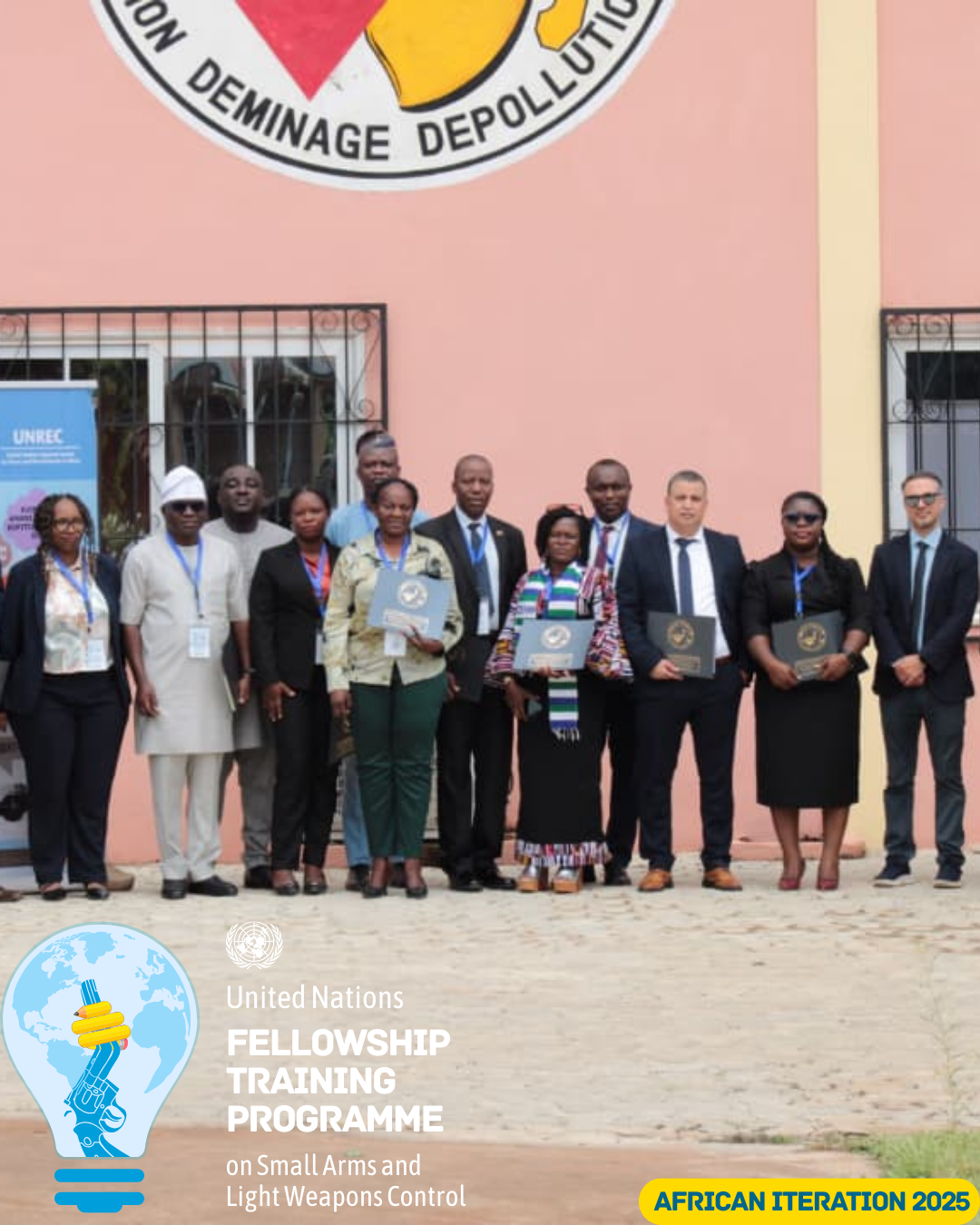In December 2022, pursuant to the General Assembly resolution A/RES/77/71, Member States decided to establish:
a standing dedicated fellowship training programme on small arms and light weapons in order to strengthen the technical and practical knowledge and expertise of government officials directly responsible for the implementation of the Programme of Action and the International Tracing Instrument, particularly in developing countries.
The SALW fellowship training programme is a key means of support for States to enhance their capacities to implement the PoA and ITI and a conduit through which the UN can continue to provide international assistance in this regard. Key areas to be covered include:
- Key global and regional arms control frameworks
- Legislative and regulatory issues
- Design and management of SALW control initiatives
- Operational aspects, including physical security and stockpile management, marking, record-keeping, tracing, border control, manufacturing, destruction, international transfers, disarmament, demobilization and reintegration (DDR).
- New and emerging issues
- SALW control in different contexts
- Inclusive SALW control
- Practical activities and research projects.
Programme Structure
The Fellowship Training Programme consists of:
- a self-paced interactive online course providing foundational knowledge on SALW control1
- a four-week in-person training designed to deepen understanding of small arms control policies and best practices2
The curriculum is based on the following key frameworks:
- The PoA/ITI, the MOSAIC, and the UNODA gender-mainstreaming small arms control manual and its Annex.
- Other relevant global instruments. mechanisms and tools for the regulation, limitation and control of small arms and light weapons.
Participation and Selection
Each year, the Fellowship will train sixty (60) government officials who are directly responsible for the implementation of the PoA/ITI, nominated by Member States and selected through a competitive evaluation process by UNODA. A total of fifteen (15) fellows will be drawn from each of the following four iterations covering all regions:
- Africa
- Asia and the Pacific
- Europe and Other States
- Latin America and the Caribbean
Each Member State would be called upon to nominate up to three (3) participants per country, but only one (1) candidate may be selected per country. Selection is competitive, and nomination alone does not secure a place in the programme.
Programme Management
The United Nations Office for Disarmament Affairs (UNODA) will provide the overall coordination, management, political oversight and substantive direction of the Fellowship Training Programme both for the self-paced online course and the in-person practical training.
The in-person training will be run in collaboration with UNODA’s Regional Centres (UNLIREC, UNRCPD, UNREC) over a four-week period through an independent specialized training institution of excellence in each of the four iterations. Expert facilitators and SALW control technical experts will support the delivery of the in-person component.
Nomination Process
Each Member State may nominate up to three candidates, but only one fellow per country will be selected. UNODA strongly encourages the nomination of qualified women to promote gender equality. Covered Expenses: Airfare, accommodation, meals, and local transportation during the in-person training.
- Access is exclusively available to selected participants by invitation only.
- In 2025, due to liquidity constraints, the programme will be piloted as a three-week in-person training.
Launch and Updates
Caribbean Iteration
Trinidad and Tobago, 28 July to 15 August 2025

African Iteration
Lome, Togo & Ouidah, Benin, 20 October – 7 November, 2025
